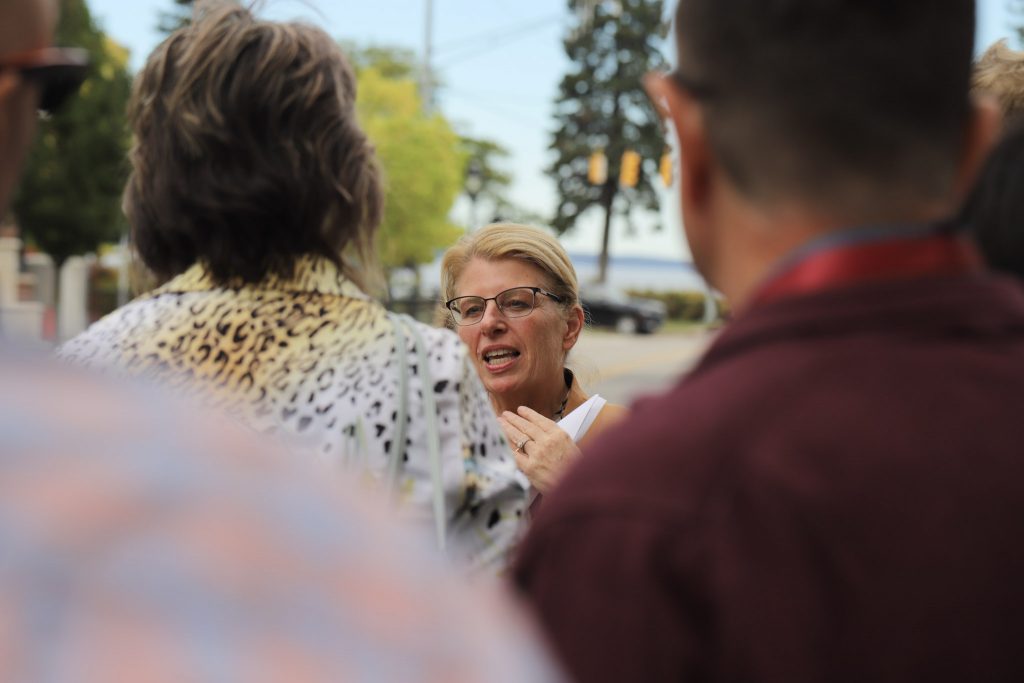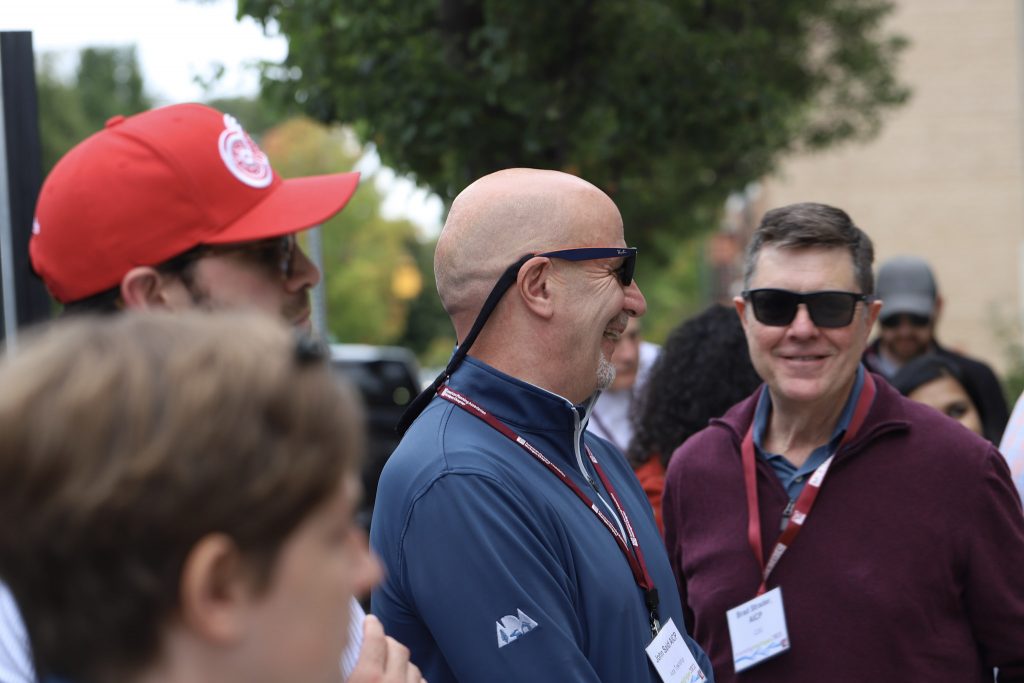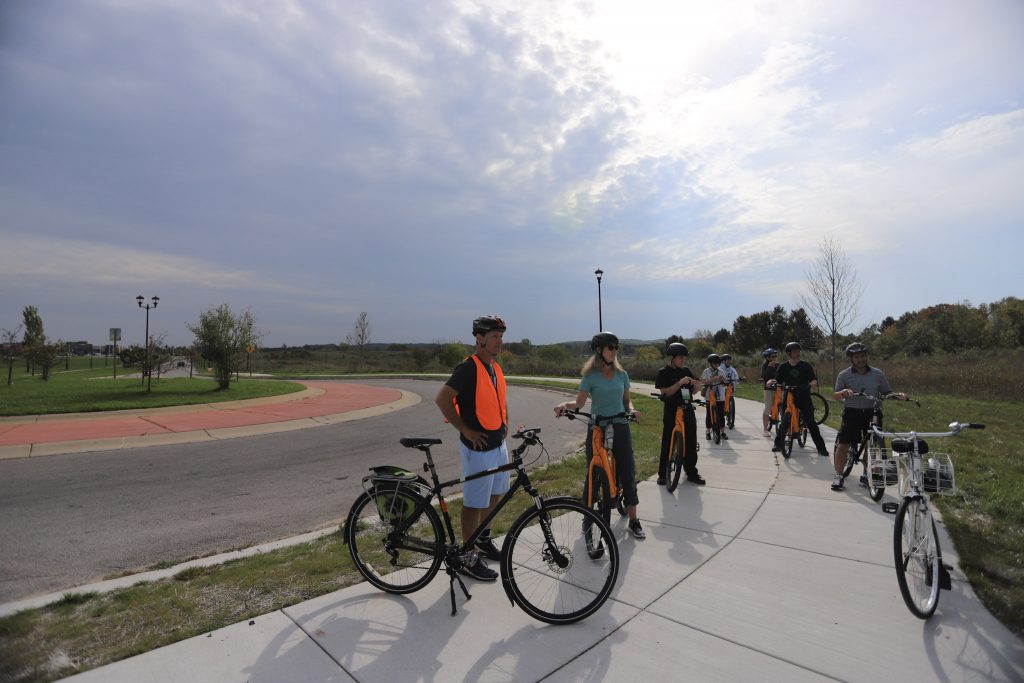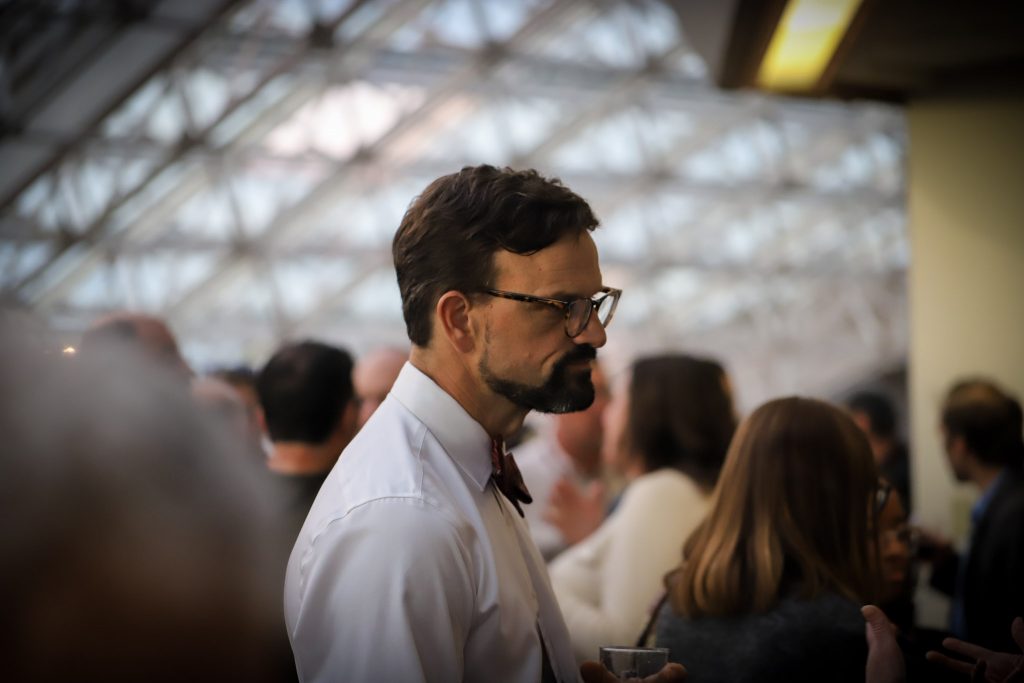Musings from Up North: Are Planners Pragmatic Dreamers? Or Just Jaded Bureaucrats?
I wrapped up Planning Michigan last week having made some great connections, and having learned quite a bit about everything ranging from siting utility-scale renewable energy projects to economic development strategies that prioritize people and local community over gigantic megaproject ideation. I met some amazing people from around the state and beyond. But throughout the conference, I often found myself wondering if some of the folks presenting had actually read anything in the past twenty years as far as how to build more sustainable cities. I heard virtually zero mention of climate change, decarbonization, or sustainability, including in the doozy of a session when I asked about siting of smaller-scale renewable energy projects and the dude was like, “Yeah, I dunno.” It being Michigan, and Michigan being a patchwork kingdom of municipal fiefdoms that compete with each other for development of sprawl, no one wanted to talk about sustainable land use planning. This led me to ask: are planners indeed just jaded bureaucrats, figuring out how to make sure that the dumpster behind the strip mall is properly screened? Or are we dreamers of a better tomorrow, grounded in pragmatic realities of laws, community engagement, and political power?

One of the things I noticed is that when I introduced myself to people, they often recognized me as having asked a question in a session they were in. This is not uncommon at conferences as I tend to be someone who is unafraid to ask tough questions, usually to point out apparent contradictions between theory and practice, or to push people to think beyond status quos or dominant paradigms. People are usually either refreshed, or, variously, ask whether I’ve ever been evaluated for autism (not kidding).
The responses I got from this conference:
“That was a great question, man!”
“Oh, hey! You’re the guy who always asks the good questions! I, too, was wondering about why MEDC subsidizes sprawl and MDOT facilitates the wanton destruction of our state to build highways!”
Hey, thanks, Bill from *peering at conference badge* Strip Mall Charter Township! If you understand this intuitively, why does Strip Mall Charter Township look like it does? I did figure out a not completely tactless way to ask this question of Bill, and he launched into an eloquent soliloquy about how he wished a major arterial route in Macomb County could be planned to include a streetcar, because people drive so fast, and MDOT won’t do anything to fix it. Of course, the streetcar will never happen, similar to how MDOT will never implement road safety features. Because MDOT and county road commissions control most of the pursestrings for road funding, nor will they ever concede that the car infrastructure is largely at fault for people’s bad driving behavior. And, of course, they will never cede a lane for transit, barring, say, well-funded litigation or the miraculous possibility of everyone in these agencies being transported to an alternate dimension, never to return.
But I digress.
Why don’t we all ask better questions?

The answer is perhaps a bit elusive, and this leads me to think about whether this is a problem with Michigan planners specifically or just city planning in general. Are city planners, in fact, able to dream big? Or are most of us just relegated to bureaucratic, administrative roles in which most of us choose to never even ask questions? I have had words with some of my colleagues in automotive who love ideas about sustainability and urbanism but truly believe that their six-figure salaries would be threatened if they were more publicly vocal about things like the importance of transit investment, for example, or about the importance of nonmotorized transportation as well as other forms of transportation.
I’ve similarly been told that asking anything but the softest-ball questions is sure to impede my employment prospects! (Hey, maybe they’re right– but, to quote Good Will Hunting, maybe I’ll be serving your kids fries on their way to a ski trip, but at least I won’t be unoriginal).

“Planners have an Educational and Informational Role”
Alan Mallach’s response to a question I asked at his keynote was instructive. His presentation was in what Richard Florida might have referred to as the “pessimistic urbanism” camp. Mallach was addressing an audience of head-shaking Michiganders, many of whom remain in denial that the state is, in fact, not gaining in population. There is even active denial of the state’s population stagnation. I encountered a suburban Detroiter on LinkedIn the other day who said something to the effect of, “well, everyone I know who left moved back, so there’s that!” while another comment said that, “oh, they’ll be back as soon as they realize how high the cost of living is in [literally any other growing city that doesn’t have prices that are that much higher than the average Michigan city these days].”
…a lot of planners are under the impression that, lacking direct political power and usually serving at the pleasure of elected officials in some capacity, they have no ability to influence things to facilitate the development of things like, say, denser, more walkable, or more sustainable cities. How can we conquer this mindset to move the needle?
But Mallach’s point was less to emphasize gloom than to try and drive home the idea that “growth simply for growth’s sake” is not, in and of itself, a noble quest. “If you get everything right, and growth happens, that’s good,” he said at one point. “If [growth] doesn’t [happen], that’s also good.” The point here, condensing a large body of academic research and commentary, was basically that we should be focusing not on growing, but on making communities better places for current residents because that’s good for everyone, irrespective of whether we grow or not. The focus on attracting monumental investment by hurling billions of dollars of few-strings-attached economic development incentives at some company that is either not going to exist in 20 years, or is not going to deliver half of the jobs it promised, is simply not sustainable.
My question was simple. Thinking about my chat with some folks from Livingston, Macomb, and, you know, Sprawly McSprawlface Charter Township, I pointed out that a lot of planners are under the impression that, lacking direct political power and usually serving at the pleasure of elected officials in some capacity, they have no ability to influence things to facilitate the development of things like, say, denser, more walkable, or more sustainable cities. How can we conquer this mindset to move the needle?
Mallach replied that planners have an educational and informational role, both in professional capacities and in sharing with the public. Planners rarely have power, he said, but they always have influence. Get out of your office! Talk to people! And, of course, ask questions. This is important ranging from the big projects to the small. Whether MDOT is coming into your community and telling you that the optimal engineering solution is to widen the road to twelve lanes from eight lanes or MEDC is dancing into town with an $800 million subsidy package negotiated opaquely behind closed doors (big projects), or whether it’s a question as simple as a client complaining about “what about the parking” (small projects).

Eric Dryer and Hannah Bush of OHM presented on Wednesday’s first session about artificial intelligence in planning, talking about the promises and pitfalls of generative AI and LLMs. I’ve written about this a lot and I spend a lot of time thinking about it, and I remain cautiously optimistic about it as I do about most novel technologies that some bozo Stanford MBA “founder” tells me is going to be the be-all, end-all. Afterward, I asked where the line is between artificial intelligence as a “very sophisticated calculator” (my preferred terminology for LLMs) and artificial intelligence as a black box whose opacity may well create more problems than the technology solves.
Dryer’s response was basically that the person operating the AI has control over a lot of input, but in some technologies, there is an important point at which the decisionmaking ability is relegated to the artificial intelligence. This is the point at which, he says, it usually becomes a black box. I’m thinking about technologies not like ChatGPT, but the currently mostly-unregulated technology powering autonomous vehicles, for example. Will the self-driving vehicle run over the elderly grandmother, or the child, if it has to choose? Will the designers of the car and its software bear any responsibility in the eventuality of either fatality? We don’t know answers to the first question, but we can guess that the answer to the second one is a resounding “absolutely not,” because of how we have set up our whole economy. But asking the questions are important.
To that end, we can think about the strategic decision-making bureaucracies within agencies like MDOT or MEDC as analogous to these black boxes. MDOT, for example, refuses to respond to media inquiries when I send them– to ask about things like the I-375 widening project and how they are approaching responses to community input that they then ignore in favor of dubious, contrived metrics produced by the Ever Glorious Road Engineers. Is it because MDOT staff is too busy to respond? Or because they are offended at me asking questions that suggest that maybe the way to get to zero-carbon transportation is perhaps not to widen every highway in the entire state, facilitating climate arson while bankrupting future generations of residents in our stagnating population? It’s probably more the second one, but without communication, the agency remains a black box. I’ve talked to dozens of people and no one knows what’s going on with I-375.

Richard Florida might well call me one of these pessimistic urbanists because I ask questions like this. They’re not easy questions, and it doesn’t exactly bring me joy to ask them. I just genuinely believe that better critical thinking can get us to a point of better urbanism, which can get us to a point of net zero carbon, more efficient land use management, regenerative management practices for natural space, and a stronger social fabric formed in stronger cities that enjoy a higher density of tax revenue alongside higher standards of livability.
I think that makes me more grounded in pragmatic reality than it makes me a dreamer, but it certainly differentiates me from being a jaded bureaucrat. Certainly, I’ll keep asking the questions, even if other folks aren’t ready to. That is a critical first step in how we assume this role that Alan Mallach mentioned of providing educational and informational support to the planning process, not just idle box-checking or rubber-stamping. If that impedes my employability by agencies uncritically presiding over a singularly unfortunate melange of population decline and state-sponsored climate arson, I guess that’s just too bad. But I’ve had more than a few clients who appreciate it and that’s how I was able to get the gig in the first place. Here’s to more of those gigs. And here’s to anyone who is working on moving that needle instead of just checking the box.


